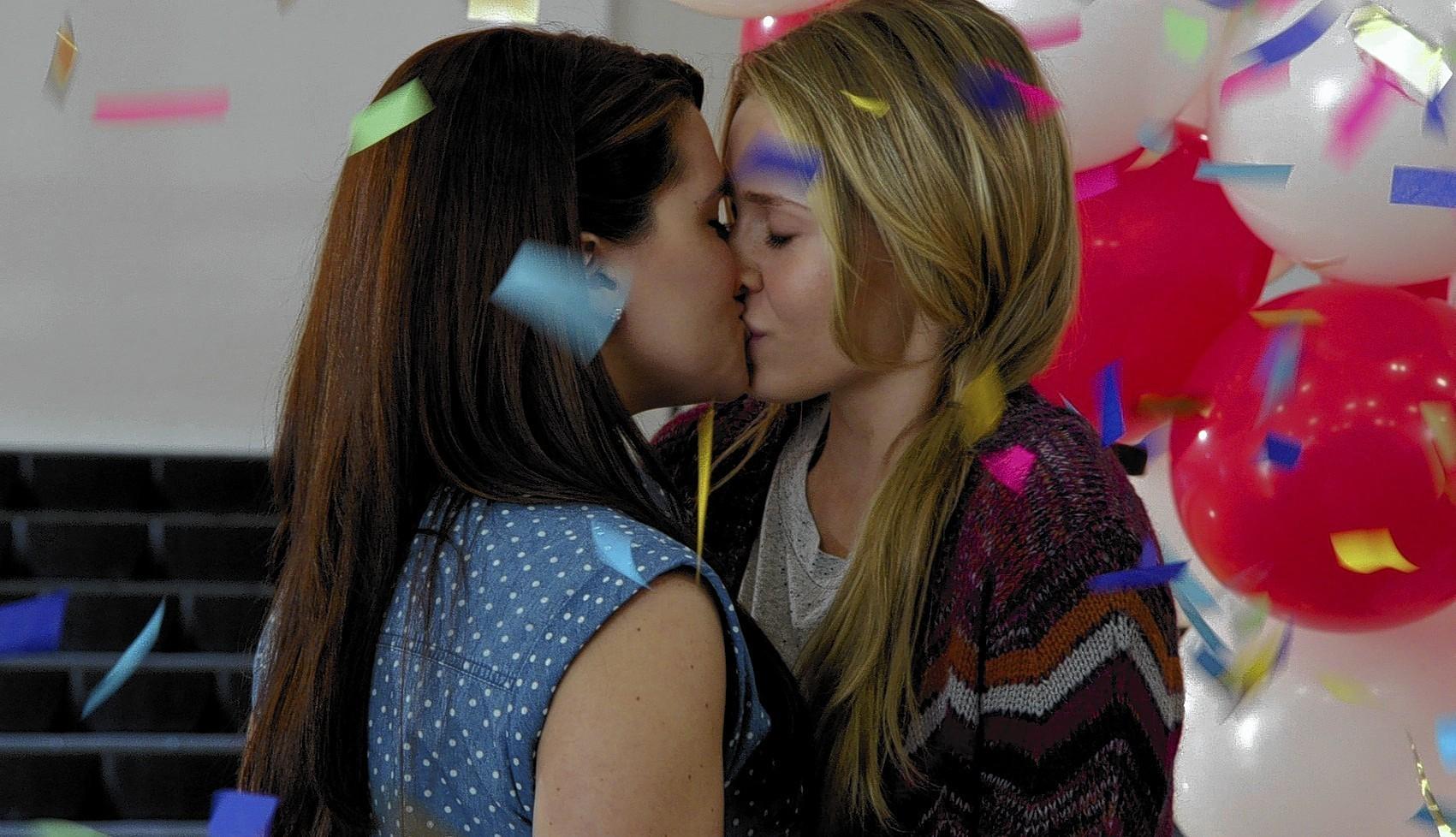It is the same old story: two outcast girls trying to become popular by doing whatever it takes. In MTV’s new comedy “Faking It” that means pretending to be lesbians. Set at the ultra-progressive (and obviously fictional) Hester High School in Austin, Texas, the show follows best friends Amy (Rita Volk, “The Hungover Games”) and Karma (Katie Stevens, “American Idol”) as they masquerade as the school’s newest lesbian couple in order to achieve social status. While the show paints itself as a post-modern, progressive project, it fails in its mission by creating caricatures of its characters and using important issues as bad punch lines.
At Hester High, being different is the key to being popular. At the top of the food chain is openly gay Shane (Michael Willett, “G.B.F.”), who commands an open and accepting student body. Feeling invisible for being so “normal” (#WhiteGirlProblems), Karma is desperate to climb the social ladder. After Shane mistakes her and Amy for a lesbian couple, Karma seizes the opportunity. Shane befriends the two “girlfriends” and helps catapult them to instant popularity. Amy is uncomfortable with the lie but goes along with it for the sake of her friend. At the same time, Karma falls for dreamboat art student Liam (Gregg Sulkin, “Avalon High”).
Like most comedies, the show relies on familiar stereotypes. Shane is a flamboyant, button-up gay student who is as beautiful as he is shallow. Early in the episode, he remarks about always wanting “lesbian friends,” as if they are an accessory to his outfit—this is very ironic considering the long-standing tradition on television to have gay men as female protagonist’s “pets” (see: Stanford Blatch in “Sex and the City” or Jack in “Will & Grace”).
In another fun stereotype—this time about lesbians—the show makes use of the idea that girl-on-girl action only exists to please straight men. With a premise that already sounds like the beginnings of a porno, Karma is not shy to use her fake lesbian relationship to draw the attention of Liam, who finds the whole situation extremely sexy.
The most disappointing aspect of the show is how it takes advantage of gay identity. The term “cultural appropriation” comes to mind in the way “Faking It” takes issues actual gay teens have to deal with and makes a joke of them. In the first episode, Shane outs Amy and Karma to a receptive student body, going so far as to get them nominated for homecoming queens. Instead of being a personal decision, coming out is forced upon Amy and Karma (who are not even gay), all so Shane and the rest of the progressive school could look like nice, accepting people.
The idea of pretending to be gay to achieve something is also cringe-worthy. Just because the show takes place in a school accepting of difference does not mean people’s differences and identities should be used to become popular and obtain a hot boyfriend, like Karma hopes to do. Imagine if all of the black students at the school were the most popular, so Karma adopted blackface in order to fit in. It is the same idea; taking on someone else’s cultural, racial, sexual or gender identity for personal gain should never be okay, much less broadcast on television under the guise of “progress.”
Sure, there are plenty of television shows and films about girls completely changing who they are to become popular. But “Faking It” takes it to an entirely different and offensive level. It has its genuine laugh-out-loud moments, and the acting is not nearly as terrible as other MTV shows, but it makes a mockery of gay identity with stereotypical characters and situations.
“Faking It” airs Tuesdays on MTV at 10:30/9:30c.











